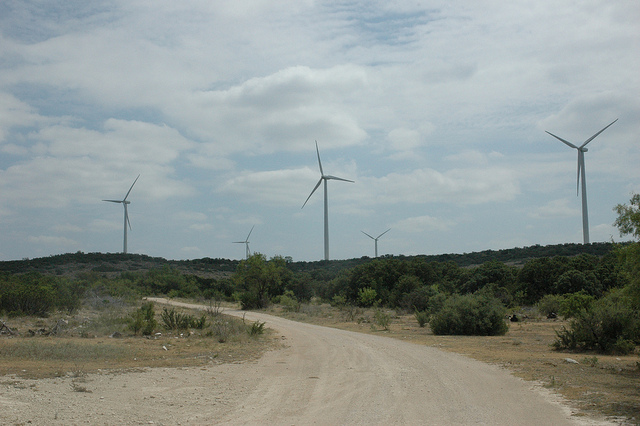Wind turbines are a common sight across Texas. In fact, Texas is the largest wind producing state in America. In 2017, the number of megawatts produced by Texas wind farms surpassed the number of megawatts of energy produced by Texas coal plants. However, not everyone is a fan of wind farms or the look of the wind turbines dotting the skyline across the Lone Star State. This has led to an interesting question: Can claimed negative aesthetic impact of a wind project by a neighboring landowner constitute a nuisance under Texas law?

TAMU AgriLife photo by Steve Byrns
Basic Texas Nuisance Law
A nuisance is defined as a “condition that substantially interferes with the use and enjoyment of land by causing unreasonable discomfort or annoyance to persons of ordinary sensibilities.” Generally, nuisance lawsuits involve invasion of a plaintiff’s property by light, sound, odor, or other foreign substance. For example, nuisance claims have arisen related to odors from a neighboring feedlot and noise from a propane cannon shot off in a grain field to deter feral hogs.
Rankin v. FPL Energy, LLC
The leading case on this issue occurred here in Texas, decided by the Eastland Court of Appeals in 2009. [Read full opinion here.]
In Rankin v. FPL Energy, LLC, neighbors of the Horse Hollow Wind Farm in Taylor County, filed a lawsuit against the farm claiming it constituted a nuisance. One of the the plaintiffs’ key claims was that the “wind farm’s aesthetic impact” and the emotional impact of the loss of the unimpeded view of neighboring landowners was a condition that could be considered by a jury in determining whether a nuisance existed. The plaintiffs claimed that the 400-foot-tall turbines significantly diminished the area’s scenic beauty and, therefore, the enjoyment of their property. One plaintiff claimed that because of the wind farm, they abandoned their plan of opening a bed and breakfast due to the view of the wind farm.
The court rejected the plaintiffs’ argument that the aesthetic impact created a nuisance. Although the court recognized the wind farm’s impact on the view and the emotional reaction this could cause, it simply did not constitute a nuisance. Texas case law limits a nuisance action “when the challenged activity is lawful to instances in which the activity results in some invasion of the plaintiff’s property and by not allowing recovery for emotional reaction alone.” Thus, Texas courts do not provide a nuisance action for damage to aesthetic impact.
Take Aways
First, this case is a good reminder that the nuisance doctrine exists and is something that all landowners should be aware of. Generally, a person has the right to do what he or she wants on his or her own property, but that right could be limited in the event that it impacts another’s use and enjoyment of his or her property.
Second, the fact that a neighboring landowner cannot make a nuisance claim against a wind company related to aesthetic impact does not prohibit all nuisance claims. For example, claims related to noise or light could still potentially be available to a landowner neighboring a wind farm. Indeed, in Rankin and in subsequent cases, nuisance claims have been filed against wind farms for the noise caused by the turbines when the wind is blowing, the blinking red lights emanating from the turbines, and the shadow flicker effect of the turning blades. These claims were not dismissed by the court in the Rankin case along with the aesthetic claims, but were allowed to proceed to trial. Courts in West Virginia and New Jersey have allowed nuisance claims related to noise from neighboring wind turbines. See Burch v. Nedpower Mount Storm, LLC, 647 S.E.2d 879 (W. Va. 2007); Rose v. Chaikin, 453 A.2d 1378 (N.J. Super. Ct. 1982).
Third, when negotiating a wind lease (or a solar lease), a landowner may want to seek indemnity from the company in the event this type of lawsuit is filed and the landowner is named as a defendant as well. As we see additional wind farms being built, particularly near more urban areas, the chances of a nuisance lawsuit being filed likely increase and a landowner could potentially be named as a defendant in this type of case. [For more resources related to wind energy leases, click here.]












